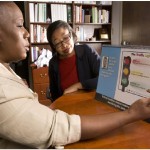
Self-injurious behaviour can have a severe impact on the quality of life of some children with developmental delay.
Here, Alix Dixon looks at a review of an extensive body of literature around potential causal mechanisms and aggravating characteristics which aims to develop a clearer working model to inform practice.
[read the full story...]









